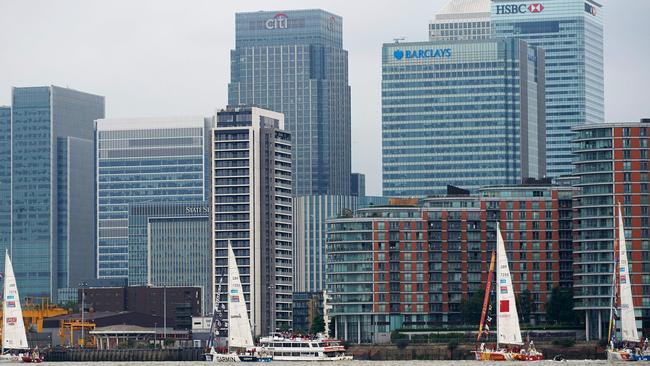Asia threatens London’s role as currency trading hub
Tokyo, Hong Kong and Singapore are eroding London’s status as the world’s currency trading hub.

London’s dominance in foreign exchange trading is on the wane as Asia and other emerging markets make inroads into the world’s largest financial market, according to an authoritative three-yearly report.
London remains the world’s foreign exchange hub but has lost ground to Tokyo, Hong Kong and Singapore, as well as New York.
In another sign of the City’s fading powers since the financial crisis, London has dropped behind New York in over-the-counter interest rate derivatives trading.
The survey by the Swiss-based Bank for International Settlements also found that the overall foreign exchange market had shrunk for the first time since 2001. Daily trading in the 24-hour currency market dropped 5.5 per cent to an average of $US5.1 trillion, from $US 5.4 trillion in 2013.
Although London remained the international capital of currency trading, its share of activity slipped from 41 per cent in 2013 to 37 per cent.
Asia’s three main centres — Tokyo, Hong Kong and Singapore — saw their combined share jump to 21 per cent of the global total from 15 per cent, while New York remained relatively stable in second place at 19 per cent, the BIS said.
The survey also showed that Europe’s foreign exchange presence is virtually non-existent, raising questions about whether it poses a viable threat to the City after Brexit. France, Germany and the Netherlands together accounted for just 5.9 per cent of the market, just over half their combined 10.1 per cent share in 2001.
The figures underlined the need for the City to pivot east to take advantage of the power of China and Singapore.
Emerging market currencies were on one side of 21.2 per cent of all foreign exchange trading, compared with 18.8 per cent three years ago, with China’s yuan accounting for the bulk of the increase. The yuan’s share of global currency trading has doubled in just three years to 4 per cent.
The pound’s share of global currency trading had been declining steadily since 2004, when it stood at 16.5 per cent but bounced from 11.8 per cent in 2013 to 12.8 per cent. The dollar cemented its dominance, on one side of 87.6 per cent of all trades.
Europe’s sovereign debt crisis has taken a severe toll on euro trading. The single currency is now on just 31.3 per cent of all trades compared with 39.1 per cent before 2010. Europe’s decline was blamed for London’s loss of its top spot in over-the-counter derivatives.
The Times


